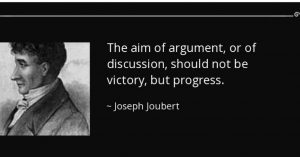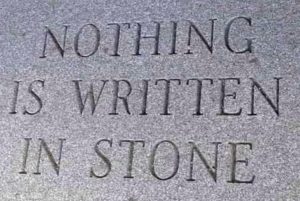 There are times many of us interact in ways we’re not very proud of. It may be because we are reacting to what someone is saying or doing. It may be because we aren’t getting our way on something we wanted to have happen. It may be because we are hurt, angry, feeling betrayed, jealous, disappointed, trying to assert ourselves, getting pushback on something important to us that we value, and so on.
There are times many of us interact in ways we’re not very proud of. It may be because we are reacting to what someone is saying or doing. It may be because we aren’t getting our way on something we wanted to have happen. It may be because we are hurt, angry, feeling betrayed, jealous, disappointed, trying to assert ourselves, getting pushback on something important to us that we value, and so on.
Interpersonal conflicts often bring out the worst in us and are when we act and react in ways that do not serve us well – reflecting ways we don’t want to be or be seen. We don’t always like ourselves at these times and it’s likely the other person in our interaction doesn’t like us either! Nor do others who observe us.
For some of us this does not matter. We like ourselves if we met ourselves anyway. Others of us do not want to be perceived in ways that do not reflect characteristics that we take pride in. We do not like ourselves at these times. This week’s Conflict Mastery Quest(ions) blog invites you to consider an interpersonal dispute in which you interacted in a way or ways you didn’t like as you answer these questions:
- What was the dispute about?
- What did you want to have happen that didn’t?
- What did the other person say or do that was especially hard to hear, hurtful, upsetting etc.?
- As you look back on that situation – what about your answer to the last question resulted in you reacting in ways that you don’t like?
- How would you describe that reaction?
- When you think about it now, what do you prefer you had said or done that you would like?
- What got in your way of responding the way you prefer?
- If someone you care about observed you – during the time you reacted in ways you didn’t like – how might that person describe you and how you reacted?
- What would you prefer that same person would say about you and how you interacted in the conflict instead?
- What sorts of things might you do the next time you find yourself becoming provoked that would prevent you from interacting in ways you don’t like?
- What else occurs to you as you consider these questions?
- What insights do you have?
#interpersonalconflict
#conflict
#coaching
#conflictcoaching
#conflictmanagementcoaching
#conflict management
#disputeresolution



 It seems that sometimes when we begin to have an argument with someone the focus isn’t on moving things forward. We might find ourselves getting stuck in blame, spending time asserting our perspective, disagreeing on the ‘right’ outcome, becoming angrier and resentful, and demonstrating other destructive reactions that keep us from progressing in constructive ways.
It seems that sometimes when we begin to have an argument with someone the focus isn’t on moving things forward. We might find ourselves getting stuck in blame, spending time asserting our perspective, disagreeing on the ‘right’ outcome, becoming angrier and resentful, and demonstrating other destructive reactions that keep us from progressing in constructive ways.
 The first job I had after graduating university was teaching English as a second language. One of the classes I taught occurred once students had reached a high level of fluency – and it was about the use of idioms and metaphors. I didn’t realize how strange metaphors and idioms sound to people learning different languages till then. Sometimes the phrases resonated with similar ones used in various cultures. Sometimes not. We shared stories about the meaning and gave examples and laughed a lot!! One example is unrelated to today’s blog but worthy of mention because we all laughed really hard about it. When we answer the door or a call for someone who is busy we might say, ‘Sorry, he’s tied up right now.’ To people who have learned the literal meaning of the words ‘tied up’ this answer would be quite alarming!
The first job I had after graduating university was teaching English as a second language. One of the classes I taught occurred once students had reached a high level of fluency – and it was about the use of idioms and metaphors. I didn’t realize how strange metaphors and idioms sound to people learning different languages till then. Sometimes the phrases resonated with similar ones used in various cultures. Sometimes not. We shared stories about the meaning and gave examples and laughed a lot!! One example is unrelated to today’s blog but worthy of mention because we all laughed really hard about it. When we answer the door or a call for someone who is busy we might say, ‘Sorry, he’s tied up right now.’ To people who have learned the literal meaning of the words ‘tied up’ this answer would be quite alarming! It seems when we are in conflict that we often tend to develop and hold onto our perspective as though it’s absolute – written in stone as it were. The more entrenched we become – due to the emotional attachment to our views and upset we are experiencing by the other person and their views – the more we reactive we are. And, at these times, we are less inclined to listen, want to listen, and consider possibilities that might serve the outcome, the relationship and us better.
It seems when we are in conflict that we often tend to develop and hold onto our perspective as though it’s absolute – written in stone as it were. The more entrenched we become – due to the emotional attachment to our views and upset we are experiencing by the other person and their views – the more we reactive we are. And, at these times, we are less inclined to listen, want to listen, and consider possibilities that might serve the outcome, the relationship and us better.